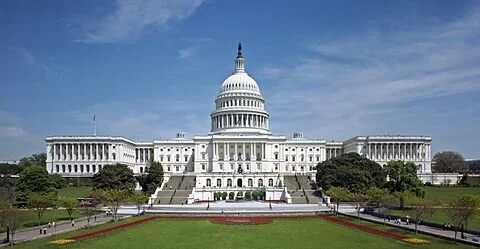Philip K. Howard: Of obsolete laws and the filibuster
Anything positive that comes out of Congress is big news, as with the recent bipartisan support for a $1 trillion infrastructure package. But that’s only half the job: Congress must also fix the delivery system that delays permitting and guarantees wasteful procurement. For example, building a resilient, interconnected power grid — probably the top environmental priority—is basically impossible in a legal labyrinth that gives any naysayer multiple ways to delay, and then to delay some more.
Congress has responsibility not only for enacting new laws, but for making sure old laws work sensibly. But Congress rarely fixes old laws. Congressional oversight consists of posturing at public hearings, not corrective legislation. Congress has effectively abdicated the oversight job to the executive branch and federal courts, which have inadequate authority to make needed legal repairs. The ship of state, weighed down by a century of statutory barnacles, plows slowly in the same direction year after year.
No statutory program works as it should. Infrastructure permitting can take a decade. Health care is a tangle of red tape, consuming upwards of 30 percent of total cost; that’s $1 million per doctor. In about half the states, teachers are outnumbered by noninstructional personnel, many focused on legal compliance. Accountability of public employees is nonexistent; 99 percent of federal employees receive a “fully successful” rating. Obsolete laws notoriously distort resources; the 1920 Jones Act, for example, makes it more expensive to build offshore wind turbines because of its requirement to use U.S.-built ships.
Washington is overdue for a spring cleaning. Only Congress has the authority to do this. But neither party has a vision about how, or even whether, to fix broken government. Congressional leaders are so dug in arguing about the goals of government that they have no line of sight to how laws actually work.
The partisan myopia is revealed by the current debate over whether to retain the Senate filibuster rule. Making it hard to enact new laws, supporters of a supermajority vote argue, encourages more deliberative new programs. Eliminating the rule, on the other hand, will allow narrow Democratic majorities to enact sweeping new progressive programs. These arguments pro and con presume that lawmaking is an additive process — that Congress’s main responsibility is to enact new programs.
Fixing old programs, however, also requires lawmaking. Should Senate rules discourage repairing existing programs? Conservative scholar F.H. Buckley argues for abolishing the supermajority entirely, even though that would mean more liberal programs in the Biden administration, because making it easier to repeal or fix broken laws would be far more impactful.
Debate over the filibuster provides an opportunity to rethink how Congress does its job. The constitutional separation of powers is designed to make it hard to enact new programs. But the Framers also knew that it was important to purge old laws. James Madison believed that “the infirmities most besetting Popular Governments…are found to be defective laws which do mischief before they can be mended, and laws passed under transient impulses, of which time & reflection call for a change.”
But the Framers did not focus on the fact that, once enacted, a program will be defended by an army of interest groups. That’s why It is more difficult to repeal or amend a law than to enact a new one. The determined defense of an obsolete program by a special interest, as economist Mancur Olson explained, will always trump the general interest of the common good. That’s why farm subsidies continue 80 years after the Great Depression ended.
All laws have unintended consequences. Circumstances change. Priorities need to be reset to meet current challenges. Agencies deviate from their congressional mandate. Clear lines of authority must be clarified to give infrastructure permits on a timely basis.
Congress must come up with a practical way to fix broken and obsolete programs. One procedural change might be for the Senate to eliminate the supermajority vote for amending or repealing laws. But the backlog of broken programs is too piled up to expect much impact from one procedural change. Congress needs to go further. Here are three changes specifically aimed at fixing broken laws:
Create nonpartisan “spring cleaning commissions” to recommend updated frameworks in each area. Then, as with base-closing commissions, the proposals would be submitted for an up-or-down vote by each chamber.
Require a sunset on all laws with budgetary impact. Over the course of a decade, Congress could then methodically update the statute books.
Revive “regular order” in Congress to provide more presumptive authority to congressional committees to fix old laws. Congress could further empower committees by automatically approving amendments that are supported by both the majority and committee ranking members.
The failure of Congress to take responsibility for the actual workings of its laws is beyond serious dispute. By delegating lawmaking to agencies, and abandoning effective oversight, Congress has severed the critical link to democratic accountability. Government keeps going in the same direction, no matter how unresponsive and ineffective. Its inability to adapt to public needs in turn spawns extremist candidates. In order to restore trust in Washington, Congress must change the rules so it can take responsibility for how laws actually work.
Philip K. Howard is a lawyer, author, New York civic and cultural leader and chairman of Common Good, a legal and regulatory reform organization that emphasizes the importance of taking institutional, political and personal responsibility. His Latest Book is Try Common Sense. This essay first ran in The Hill.
